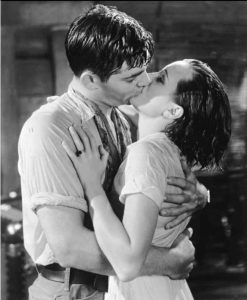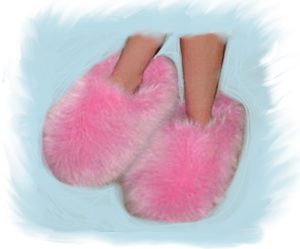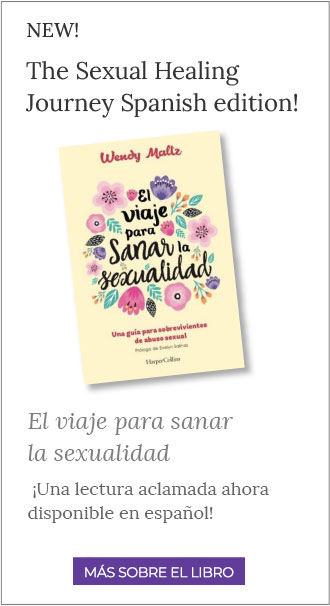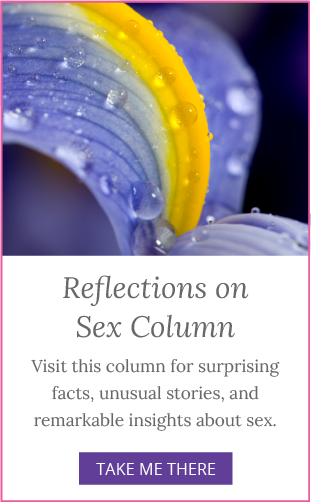In this first issue of “Reflections on Sex,” Wendy explores the influences and experiences that led her into the brand new field of sex therapy.
I was born in 1950, two years after Dr. Alfred Kinsey published the first-ever report on human sexuality and three years before the first issue of Playboy magazine appeared. As a child, I had no clue that someday I would become a sex therapist and write several books on sexuality myself.
Back then, the field of sex therapy didn’t even exist. Pioneer sex researchers Dr. William Masters and Virginia Johnson first coined the term in 1958 in a study proposal. They later defined “sex therapy” as a method for treating sexual problems in their groundbreaking best-seller, Human Sexual Inadequacy, in 1970. Reflecting on my life now, after having enjoyed a wonderful career as a sex educator and therapist for over four decades, I see that the signs of what I might become were all there.
An inquisitive child
I have always been curious about sex. I wanted to know about everything: Why do baby chicks come from eggs? Why do boys have penises and girls don’t? Why don’t men’s nipples make milk? why? Why? WHY? While most of my questions received fairly detailed answers, when it came to questions about sex, sexual body parts and reproduction, my parents were uncomfortable going much further than providing vague explanations or joking around. As for many of us, the primary message I got about sex was that it was something that happens when two people love each other a lot and want to get close. Needless to say, that did NOT satisfy my curiosity.
As a young teenager in the 1960s, I realized if I wanted to know more about sex, I would have to get the answers on my own. We didn’t have computers and smart phones that would provide quick answers simply by typing key words like “vagina” and “intercourse.” I went to the only reliable information source I knew of: the public library. When other kids were reading books on history, sports, fashion and fishing, I was fishing for a sneak peek at human anatomy and sexual behavior.

I also spent many an afternoon after school watching old romantic black and white movies on our television in the basement of our home. These films usually featured some angst-filled plot involving two (typically white, hetero) people who fell in love, battled forces attempting to separate them, and then had to fight their way back to each other. Everything ended with confessions of love, a big hug, and a dramatic kiss, which provided me a bodily thrill that I found well worth the wait.
While I cherished the idea of sex as an exciting experience connected to a loving relationship in my teen years, it didn’t take long for me to discover –through fumbling with guys in the backseats of cars, fumbling with my own body on my own, talking with friends, things I witnessed, erotica I read and saw — that sex was a lot more than a hug and a joining of lips. Sex seemed connected to a wide variety of thoughts, feelings, and sensations I experienced throughout the day and dreamt about at night. Imagining a good-looking guy liked me, feeling water spill over my body in the shower, or laughing about dating experiences with girlfriends at a sleepover generated much excitement. I marveled at the orgasm-producing nature of sexual touch which took it beyond words and guilty pleasures, into a territory I found exhilarating and beautifully spiritual.
As I moved through my teen years, I continued my quest to acquire sexual knowledge where I could. I learned that sex can be expressed in many positive ways, but there was a dark side too. I learned that the impact of a sexual experience can be so minor as to be insignificant, like a handshake with a stranger. Or so profound, as in the case of an unwanted pregnancy or a debilitating sexually transmitted infection, as to change the course and quality of a person’s life.
Sex impressed me more than any other subject I was interested in as a young person. I felt its power to involve and affect me personally. How many other human experiences exist that are this intellectually complex, physically profound, emotionally textured, and socially significant? How many other experiences are capable of influencing our sense of self and our most intimate and important relationships?
A thrilling, taboo topic
I entered college in 1968 when birth control for unmarried women and abortion were illegal in many states. The safety of contraceptive pills was being questioned. Intra-uterine contraceptive devices (IUDs) had just appeared on the market as a controversial new form of birth control. I became involved in protesting the Vietnam War and sewed “Make Love, Not War” slogans on my clothing. The subjects I studied in college included art history, criminology, philosophy, psychology, biology, and sociology.
While my classes were interesting, nothing in my academic curriculum wowed me as much as the learning I did on my own about sex. I didn’t feel comfortable bringing up the topic of sex in class. I feared others would think me “abnormal” or “over-sexed.” I experienced this unique and fascinating area of human behavior as off-limits.
A closet sex researcher
Outside of the classroom, however, sex was by no means off-limits with my college peers. Everyone seemed distracted with sexual longings, flirting, dating and experimentation. Behind closed doors in my large, all-women dormitory at the University of Wisconsin, sex was a prime subject of late-night jokes, whispered conversations and roommate confessions. It didn’t take me long to realize that despite my personal “research,” I might be more sexually innocent and ignorant for my age than I’d assumed.
To test my concerns, I took it upon myself to do a survey of sexual behavior among coeds on my dormitory floor. I thought for sure that most of the freshman girls, like myself, were still virgins.

One evening, dressed in a flannel robe and fluffy slippers, I went down the hall with a clip-board and hand-drawn chart, going door by door and asking any girl who would answer me honestly whether or not she had had sex. I checked off responses in a “did it” or “not yet” column depending on their answers. I don’t recall any girl refusing to answer, although a few might have hidden from me when they heard I was coming!
Afterwards I tallied and calculated the responses. Of about 50 girls I spoke with, nearly 85% had “gone all the way.” I was shocked to find my sexually adventurous and curious self in the minority! The results of my first sexuality study convinced me that it was time to remedy the situation. Within a few months I had fallen in love with a guy I met at a dance and did just that.
My inquisitiveness about sex has never wavered even though my research methods have greatly improved over time: I don’t do much research in fluffy slippers any more.
An exciting, expanding field
I didn’t realize it at the time, but my innocent foray into sex research that year was an early indicator of where I was headed: to a lifetime professional career in the field of human sexuality. I ended up focusing my undergraduate studies into areas of psychology and human behavior. I went to graduate school at the University of California at Berkeley and earned a Master’s degree in clinical social work, with an emphasis on individual, relationship and family counseling.
After graduation I went to work in a Bay Area public junior high school as a special counselor for troubled kids. I received specialized training as a sex educator with Planned Parenthood. These early experiences created the foundation for the specialized training I would later pursue to become a therapist who helped people address sexuality concerns.
I’m glad I went into this field and for the opportunity to be so close to the evolution of it. Over the years sex therapy has expanded to help people address the repercussions of sexual trauma, problematic sexual behaviors, medical concerns, and more. I’ve been thrilled to see sex therapy grow to embrace sexual diversity, cultural differences and a wide variety of sexual lifestyles.
Although we’ve made great strides in moving sex away from ignorance, shame and silence, I believe we still have lots more to do. Our society would benefit from comprehensive sex education in the schools to encourage healthy sexual choices and behavior. It would be exciting to expand our thinking about sex to include a recognition of its healing powers, awe-inspiring qualities and central role in our mental health and the health of our families and communities.
As you can tell, my desire to know everything about the fascinating world of human sexuality moved from an early childhood spark of curiosity to a lifetime passion for helping people feel more comfortable with sex. And as new scientific discoveries and insights about sexual expression emerge, I’m positive my curiosity will always be there.
© Copyright Wendy Maltz, all rights reserved.



